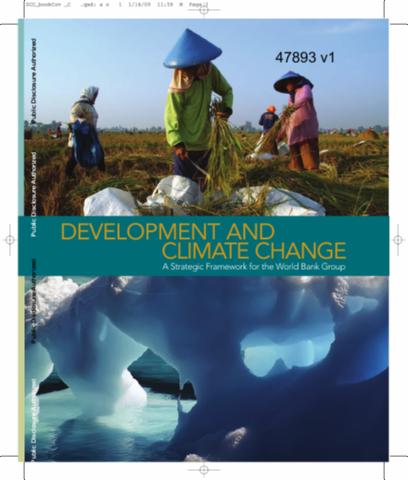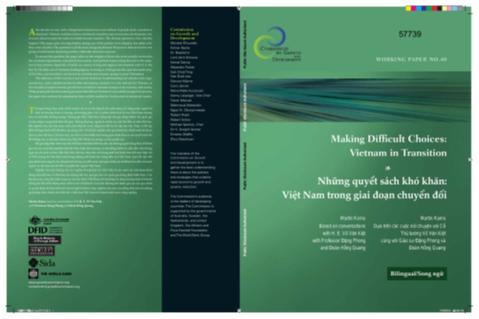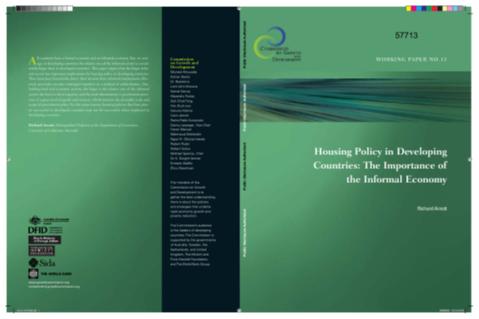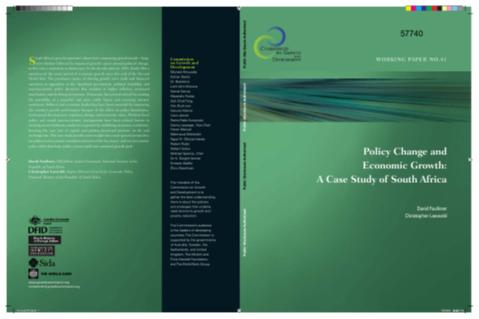The World Bank is a vital source of financial and technical assistance to developing countries around the world. We are not a bank in the ordinary sense but a unique partnership to reduce poverty and support development. The World Bank Group has two ambitious goals: End extreme poverty within a generation and boost shared prosperity.
- To end extreme poverty, the Bank's goal is to decrease the percentage of people living on less than $1.25 a day to no more than 3% by 2030.
- To promote shared prosperity, the goal is to promote income growth of the bottom 40% of the population in each country.
The World Bank Group comprises five institutions managed by their member countries.
The World Bank Group and Land: Working to protect the rights of existing land users and to help secure benefits for smallholder farmers
The World Bank (IBRD and IDA) interacts primarily with governments to increase agricultural productivity, strengthen land tenure policies and improve land governance. More than 90% of the World Bank’s agriculture portfolio focuses on the productivity and access to markets by small holder farmers. Ten percent of our projects focus on the governance of land tenure.
Similarly, investments by the International Finance Corporation (IFC), the World Bank Group’s private sector arm, including those in larger scale enterprises, overwhelmingly support smallholder farmers through improved access to finance, inputs and markets, and as direct suppliers. IFC invests in environmentally and socially sustainable private enterprises in all parts of the value chain (inputs such as irrigation and fertilizers, primary production, processing, transport and storage, traders, and risk management facilities including weather/crop insurance, warehouse financing, etc
For more information, visit the World Bank Group and land and food security (https://www.worldbank.org/en/topic/agriculture/brief/land-and-food-security1
Resources
Displaying 4751 - 4755 of 4907Development and Climate Change
This strategic framework serves to guide and support the operational response of the World Bank Group (WBG) to new development challenges posed by global climate change. Unabated, climate change threatens to reverse hard-earned development gains. The poorest countries and communities will suffer the earliest and the most. Yet they depend on actions by other nations, developed and developing. While climate change is an added cost and risk to development, a well-designed and implemented global climate policy can also bring new economic opportunities to developing countries.
Economic Growth in Egypt
The paper focuses its analysis on the last three decades of the twentieth century. The basic assumption is that Egypt's economic performance during this period was less than satisfactory compared with the most successful examples in the far East and elsewhere. The paper also assumes that Egypt's initial conditions at midcentury compared favorably with the winners in the development race at the end of the century. Egypt has achieved positive progress, no doubt, yet compared with the higher performers in Asia, and given its favorable good initial conditions, the record seems quite mediocre.
Making Difficult Choices
After decades of war, with a dilapidated infrastructure and millions of people dead, wounded or displaced, Vietnam could have been considered a hopeless case in economic development. Yet, it is now about to enter the ranks of middle-income countries. The obvious question is: How did this happen? This paper goes one step further, asking not which policies were adopted, but rather why they were adopted. This question is all the more intriguing because the process did not involve one group of individuals displacing another within the structure of power.
Housing Policy in Developing Countries
All countries have a formal economy and an informal economy. But, on average, in developing countries the relative size of the informal sector is considerably larger than in developed countries. This paper argues that this has important implications for housing policy in developing countries. That most poor households derive their income from informal employment effectively precludes income-contingent transfers as a method of redistribution.
Policy Change and Economic Growth
South Africa's growth experience provides an example of how contrasting growth trends long-term decline followed by improved growth pivot around political change, in this case a transition to democracy. In the decade prior to 1994, South Africa experienced the worst period of economic growth since the end of the Second World War, with growth variable and declining.










